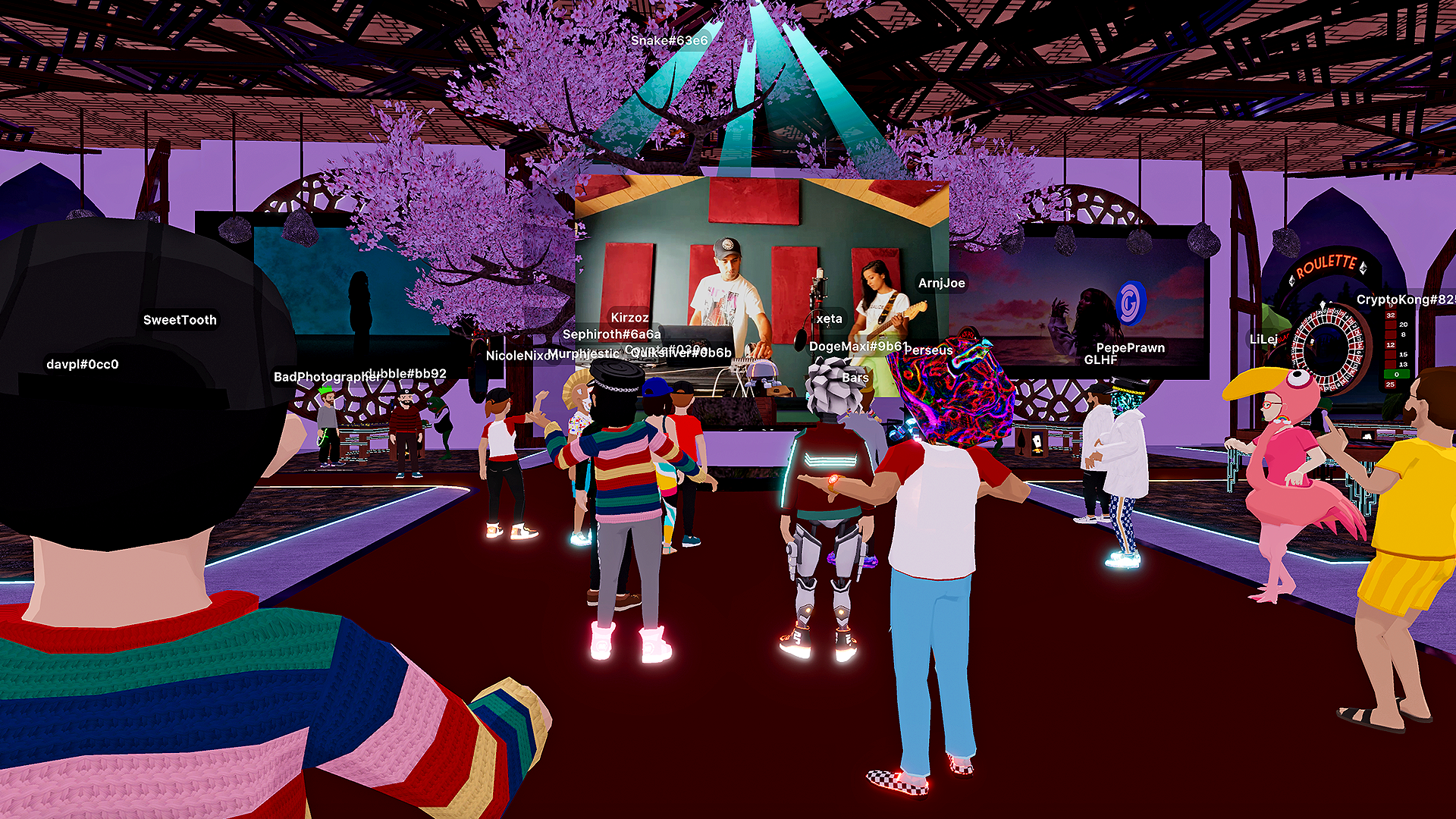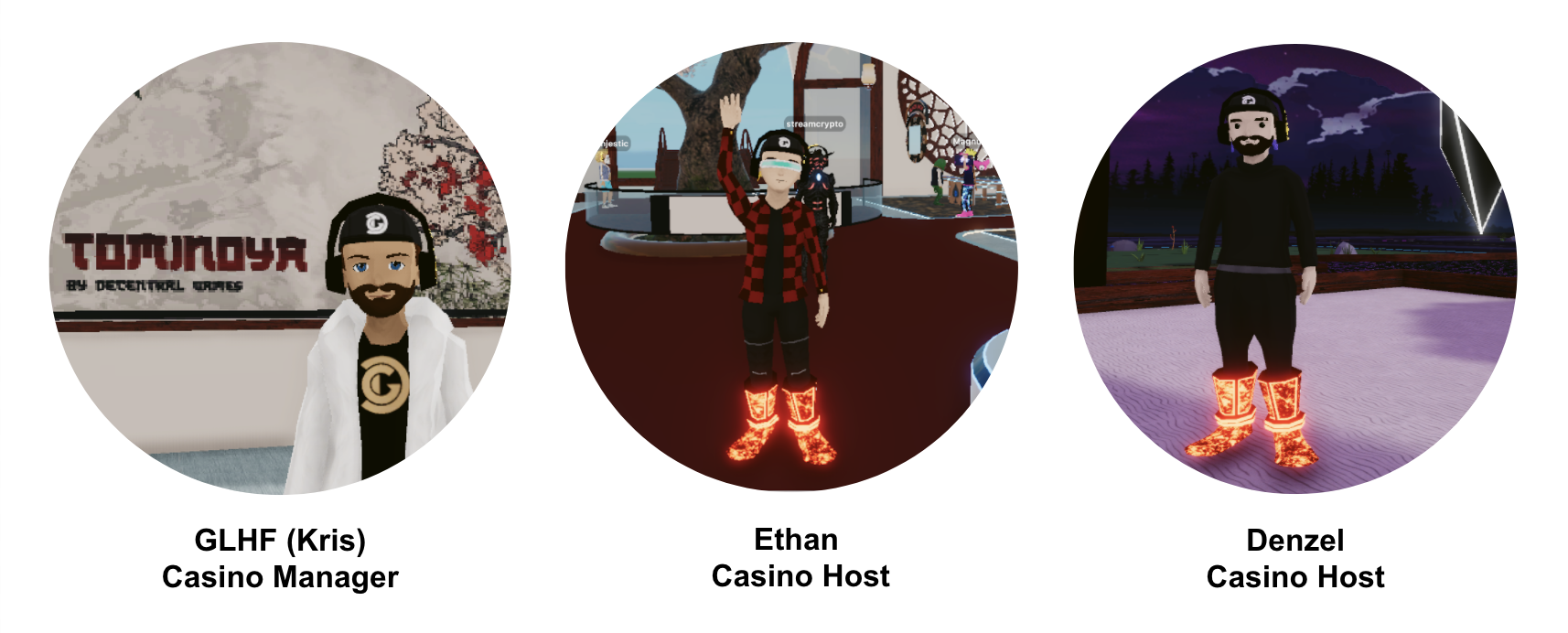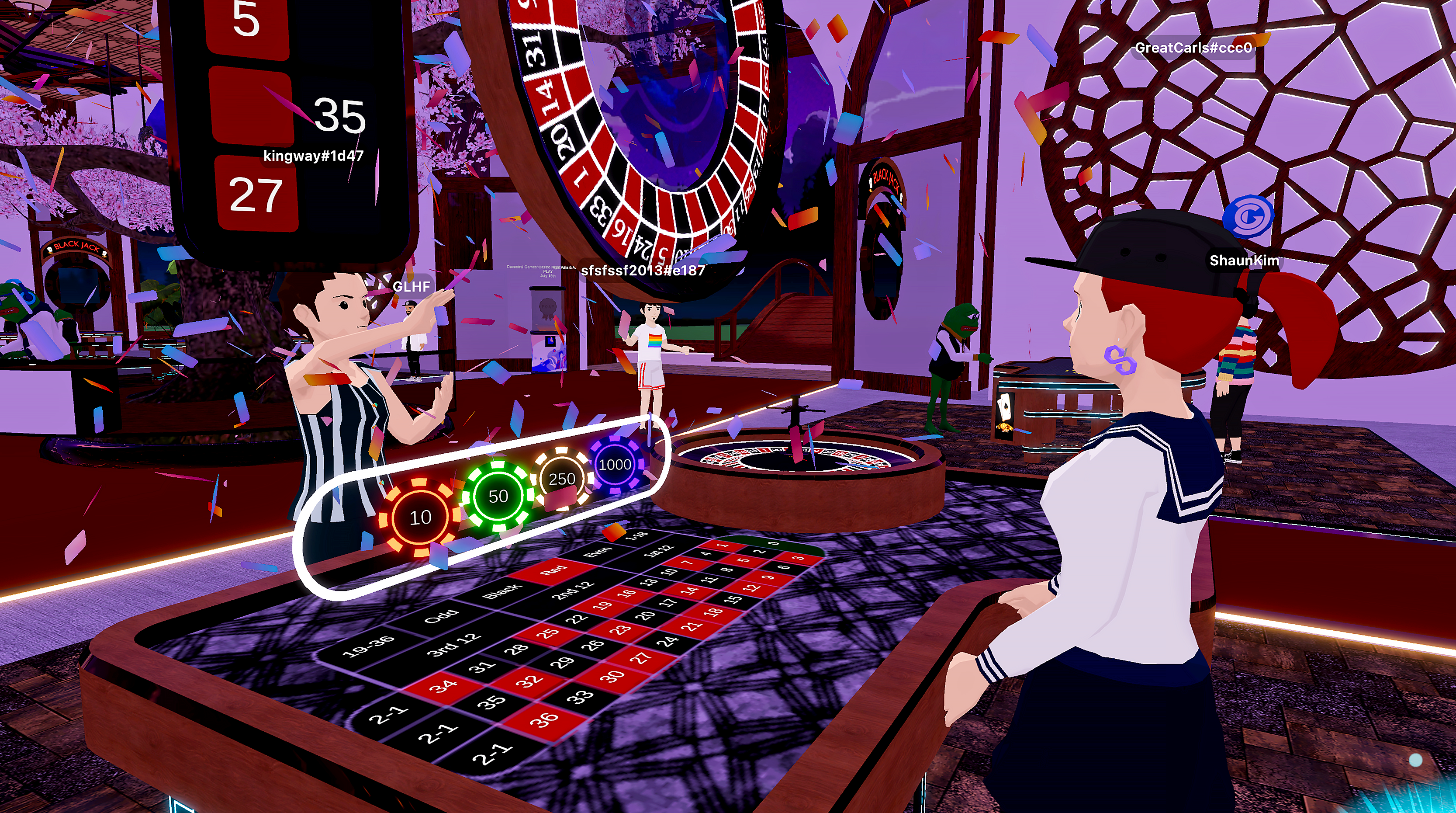Latest News
As the World’s First Metaverse Employer, Decentral Games Is Defining the Future of Work

Few periods in history have altered the general public’s perception with regard to the future of work more profoundly than the last eighteen months.
After spending considerable time in isolation, perhaps it’s no wonder workers across the world have emerged from the pandemic having re-evaluated their professional passions, workplace preferences, and outlook for the future of their careers. Coincidentally, this once in a lifetime macroeconomic event has coincided with a key inflection point in the worlds of cryptocurrency and blockchain. For the first time in history, workers have been afforded the unique opportunity to pursue gainful employment in the most futuristic workplace known to humankind – the metaverse.
Decentral Games proudly bears the honor of becoming the world’s first metaverse employer. It’s an important and necessary responsibility we believe will bring a new wave of adoption and sense of community not only to our platform, but to the industry at large. As we’ve continued to scale headcount over the last year, our thesis for investing in new talent and helping to define the future of work has only grown stronger.
Despite having established careers prior to joining Decentral Games, new employees who join our ranks express feeling a call to become part of something bigger. “The job I had at the time was ten years in the making, an amazing place to work, and I wanted to leave it with every part of me…” Murphjestic, Decentral Games’ Community Manager recalls of leaving his Big 4 Accounting role. “I loved that job, so it wasn’t a matter of being unhappy with my employer. I had fallen in love with crypto, the metaverse, the potential and the amazing communities that were being forged.”


It’s often the case that technological innovations come with a counterintuitive tradeoff, that despite being more connected than ever, the human element of community and working towards a common purpose is lost. As a team, we quickly realized that gaming and socializing in the metaverse was going to be an unfamiliar feeling for most – at least at first – so connecting with new users from the start and making them feel welcome was proving to be an especially important task. “The original idea was to have someone charismatic greet new users and play games with them so they aren’t alone.” GLHF (Kris), DG’s Casino Manager remembers. “That quickly blossomed into an elite, full-blown support system of 20+ Casino Host team members, most of which are working 8+ hour daily shifts, and can now answer almost any question and resolve issues for users, on the spot.”
Most employees see immediate gratification and fulfillment in the work they’re performing due to their rapport-building with our customers, many of whom are awestruck navigating the metaverse for the very first time. “It reminds me how important it is to onboard complete strangers…” Casino Host, 100Rainbows said. “While a waiter will meet/greet patrons and aid them with the menu, a Decentral Games Host can help newcomers to walk/talk and teleport within the metaverse.”
These initial interactions additionally present an opportunity to introduce players to Decentral Games’ play-to-earn model, a unique system that allows both players and employees to acquire shared ownership in the platform the more they interact with it. Players place wagers and earn rewards via our proprietary $DG token, an asset simultaneously represents both a unit of account and fractional ownership. Through the $DG DAO, $DG token holders own the casino, control the profits, vote on new games and decide on feature proposals. The system allows customers to “be the house” and financially aligns the interests of our employees with our players, fostering a stronger sense of community not seen in the traditional gaming sector.
Aside from the nature of their work, DG metaverse employees see the upside of completely remote work, a team-oriented environment, flexible hours, and opportunities to develop cutting-edge skills. “I can pick the hours that won’t affect my school work and also allow me to not miss any time with friends and family and that is something I’m extremely grateful for,” Ethan, a Casino Host says of his schedule. “In fact, I can work more than double the hours at DG than I’d be able to work elsewhere all from the comfort of my home.”
Above all, what keeps our talent executing day in and day out on Decentral Games’ bold vision for the future is the belief in limitless opportunity and potential. The world of cryptocurrency today is filled with genuine excitement, a feeling that is deeply reminiscent of the internet boom that captivated the world’s imagination in the early 2000’s. Similarly, before they made the leap to get involved, many of our employees were just crypto-enthusiasts looking to get a foot in the door of this game-changing industry. As the industry has evolved to support the immersive infrastructure of the metaverse, the new ecosystem has rapidly matured to the point of being considered the future frontier of work. Even amid the uncertainty of price fluctuations in crypto markets and short-term market uncertainty, the team is filled with conviction that cryptocurrency has the potential to ring in a brighter future for all who wish to participate in it. “The strange part is describing my work to people, it’s always a ‘Shut up, no way!’ moment if they are young or simply a confused look for people my parents age, Denzel, a Casino Host, says. “Nonetheless it turns heads and opens people’s eyes to the possibilities being created by blockchain technology.”
-

 Africa6 days ago
Africa6 days agoNew Governing Board of the Gaming Commission of Ghana Sworn in
-

 Africa7 days ago
Africa7 days agoBetKing Delivers Healthcare Services and Nutrition Support to Underserved Nigerian Communities
-

 Asia7 days ago
Asia7 days agoQTech Games strengthens its elite suite with Bigpot Gaming
-

 Asia6 days ago
Asia6 days agoMacau Government Extends Lottery Concession of Macau Slot Until 5 June 2026
-

 Latest News6 days ago
Latest News6 days agoWeek 26/2025 slot games releases
-

 Latest News7 days ago
Latest News7 days agoDATA.BET Launches Bet Builder for Sports Betting
-

 Africa6 days ago
Africa6 days agoQTech Games hires Ekaterina Mayorova as sales lead for Africa & Eastern Europe
-

 Latest News7 days ago
Latest News7 days agoSpillemyndigheden: 60,000 Have Self-Excluded from Gambling in ROFUS





































